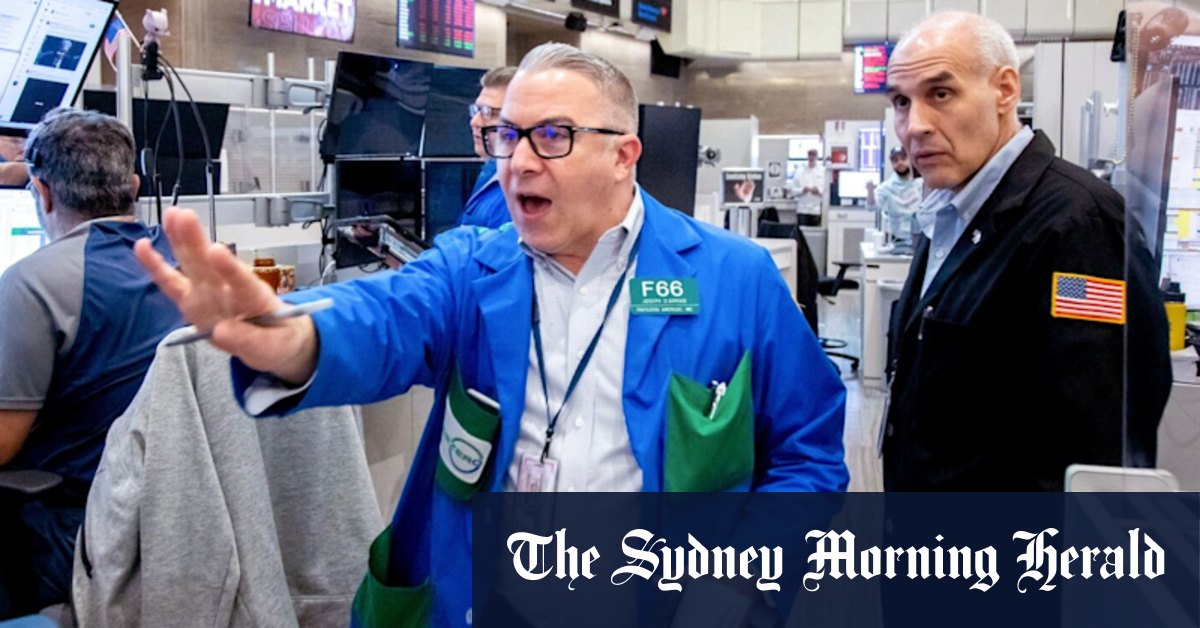Loading
At a meeting to approve the deal, Star’s chair, Anne Ward, warned that the company faced collapse if the deal wasn’t approved. Its fate still hangs on a pending court judgement on a penalty for breach of money laundering controls that could exceed $400 million.
The losers
Mining stocks posted the biggest falls. Iron ore heavyweights BHP, Fortescue and Rio Tinto shed 1 per cent, 2.3 per cent and 0.6 per cent, respectively, after iron ore prices dropped 1.1 per cent overnight.
Gold miners Northern Star Resources, Evolution Mining and Newmont lost 2.6 per cent, 0.9 per cent and 1.1 per cent as the flight to haven assets such as bullion slowed.
Energy stocks continued to soften after oil prices suffered their biggest slump in three years over the past two days, due to the war in the Middle East. Oil and gas giant Woodside was down a further 0.7 per cent after its 6.5 per cent slump on Tuesday, while smaller rival Santos shed 1.2 per cent, even as oil prices edged higher in the afternoon as traders assessed the Iran-Israel ceasefire.
Brent Crude rose about 1 per cent to near $US68 a barrel, having slid 13 per cent in this week’s turmoil.
Loading
Supermarket chains Woolworths and Coles declined 0.7 per cent and 0.5 per cent, respectively, after a report in The Australian Financial Review suggested German discount rival Aldi is lowering prices, stepping up the supermarket wars.
Software maker Xero had its shares halted from trade until Thursday as it is selling $1.85 billion worth of new shares to fund managers to help pay for its $3.9 billion takeover of US accounting and payments software company Melio. This is the biggest acquisition in Xero’s history. The company is offering the new shares at $176 apiece, a 9.4 per cent discount on its last closing price.
The lukewarm session, in which the market swung between minor gains and losses, comes despite a boost in US stocks overnight after US President Donald Trump announced a ceasefire between Iran and Israel on Tuesday, raising hopes that the worst of the Middle East conflict has passed.
Share price movements were less pronounced than during the initial exuberance after the announcement, which had sent the ASX up 1 per cent on Tuesday, as investors were waiting to see if the fragile truce will hold.
“The geopolitical risks have abated, but the ceasefire doesn’t exactly look to be ironclad at this stage,” said Tim Waterer, chief market analyst at KCM Trade.
The ASX kept fluctuating even after the news that Australia’s monthly inflation rate cooled faster than anticipated in May, giving the Reserve Bank space to cut rates at its early July meeting. The Consumer Price Index indicator advanced 2.1 per cent, compared with economists’ 2.3 per cent forecast, Australian Bureau of Statistics data showed.
Loading
Phil O’Donaghoe, Deutsche Bank’s chief economist for Australia, said the lender was now expecting the Reserve Bank to cut rates by 25 basis points at its meeting on July 8, with further cuts expected for August and November.
Despite all the global uncertainty, there was “still nothing [that] appears pressing enough [from Australia’s perspective at least] to overwhelm the compelling domestic case for easier policy,” he wrote in a note to clients.
On Wall Street overnight, the S&P 500 climbed 1.1 per cent, following up on big gains for stocks across Europe and Asia, after Trump said Israel and Iran had agreed to a “complete and total ceasefire”. The main measure of Wall Street’s health is now back within 0.8 per cent of its record set in February. The Dow Jones jumped 1.2 per cent, and the Nasdaq rallied 1.4 per cent.
Investors viewed this week’s fall in oil prices as taking some pressure off inflation in the world’s largest economy, which in turn could give the Federal Reserve leeway to resume cutting interest rates.
The Fed has said it wants to wait and see how much Trump’s tariffs will hurt the US economy and raise inflation before committing to its next move. Trump has been pushing loudly for more cuts. Fed Chair Jerome Powell remains cautious, though he did indicate overnight that the Fed’s next move is likely to be a cut.
He told a Congressional committee that “We will get to a place where we cut rates, sooner rather than later – but I wouldn’t want to point to a particular meeting.″
With AP, Bloomberg
The Market Recap newsletter is a wrap of the day’s trading. Get it each weekday afternoon.
